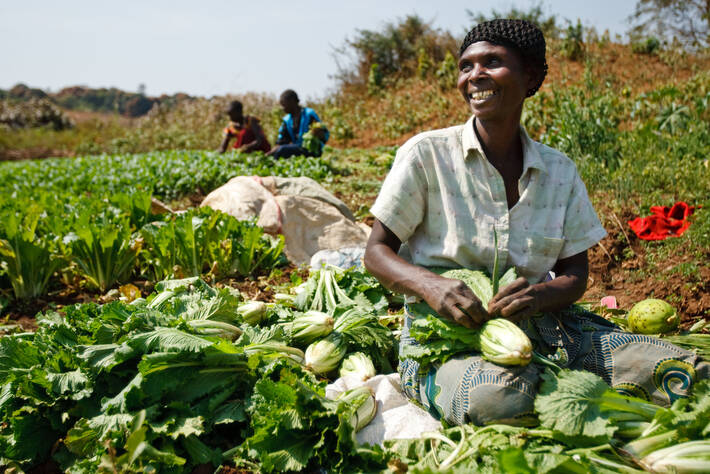The Federal Government has reaffirmed its commitment to strengthening food security in Nigeria through strategic support for farmers, improved irrigation systems, and climate resilience measures.
Speaking at the 2025 Ministerial Press Briefing Series in Abuja, the Minister of Water Resources and Sanitation, Prof. Joseph Utsev, announced plans to commission 11 new projects in 2025.
According to him, these include dams, irrigation schemes, and water supply systems in Benue, Jigawa, and Yobe; key agricultural zones with high food production potential.
Utsev revealed that the ministry was implementing the Sustainable Power and Irrigation in Nigeria (SPIN) project, in collaboration with 20 states, to modernise dam and irrigation infrastructure and develop a national hydropower masterplan.
The states involved are Adamawa, Bauchi, Benue, Borno, Delta, Ebonyi, Ekiti, Enugu, Gombe, Jigawa, Kaduna, Kano, Katsina, Kebbi, Nasarawa, Niger, Plateau, Sokoto, Yobe, and Zamfara.
The minister said the River Basin Development Authorities (RBDAs), the ministry’s implementing agencies, had supported farmers with more than 154,000 hectares of irrigated land.
“In addition, tractors and harvesters have been distributed to enhance mechanised farming. As part of ongoing reforms, over 4,400 hectares of farmland have been leased to commercial farmers to expand food production,” he said.
He noted that investments in human capital were also underway, with the National Water Resources Institute (NWRI) recently graduating more than 230 postgraduate students in Integrated Water Resources Management.
He added that more than 1,300 young people had been trained in technical fields such as pump installation and drilling technology.
Utsev said the Nigeria Hydrological Services Agency had intensified early flood warning efforts in response to the impact of climate change on farming communities.
“More than 1,200 communities in 30 states have been identified as flood-prone in 2025. In response, the Nigerian National Flood Insurance Programme was launched in April to provide financial protection for vulnerable households and farmers.
“We are proactively addressing climate risks through science-based early warning systems and financial safety nets,” he stated.
The minister explained that the RBDAs were being partially commercialised to attract private sector participation, reclaim encroached farmlands, and improve sustainability and investment in the agriculture sector.
He thanked President Bola Tinubu for his support and acknowledged the efforts of state governments, development partners, stakeholders, and the media.
“We remain committed to transforming Nigeria’s irrigation landscape, improving access to safe water, creating jobs, and reducing poverty,” he added.
Earlier, the Minister of Information and National Orientation, Mohammed Idris, stated that Nigeria’s inflation slowed to 2.06 per cent in April, down from 2.18 per cent in March, due to price drops in staple foods like maize flour, rice, and beans.
Idris attributed the progress to strategic government interventions in agriculture, transport, and essential services.
“While we are not yet where we want to be, these numbers give us hope. The tough decisions are starting to yield results,” he said.
Idris highlighted key investments in infrastructure, water, sanitation, and the creative economy, noting the Tinubu administration’s focused on restoring Nigeria’s global prominence.
He reaffirmed the government’s commitment to people-centred policies aimed at economic stability and called on the media to share the positive developments responsibly and patriotically.
The session was also attended by the Ministers of Arts, Culture and Creative Economy, Hannatu Musawa, and Works, Sen. David Umahi.
NAN


